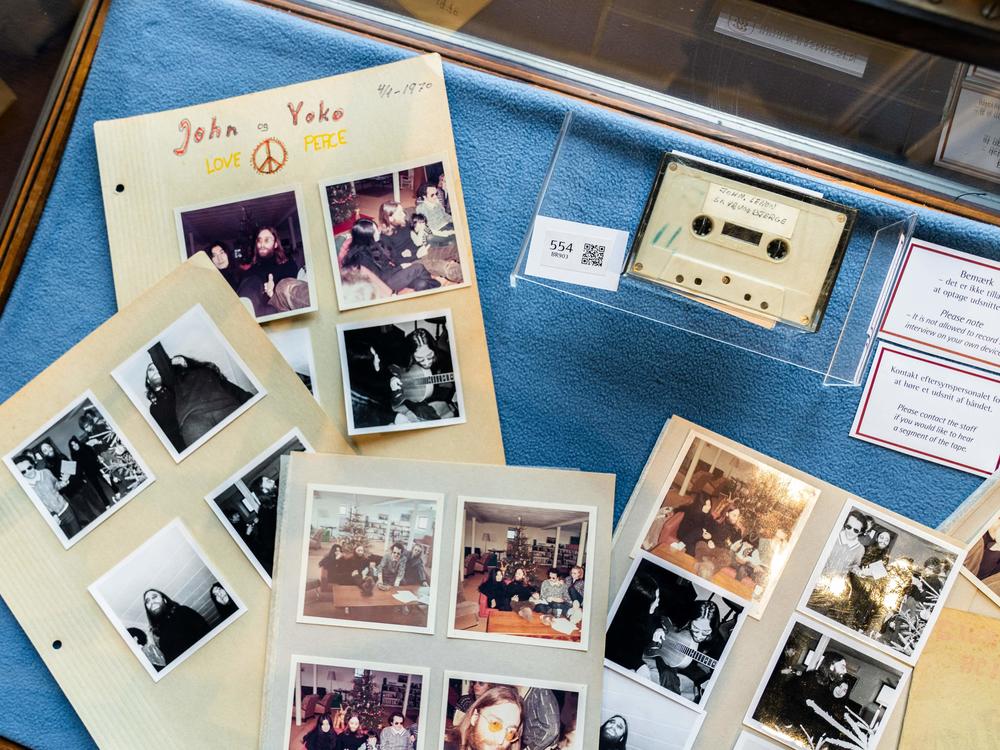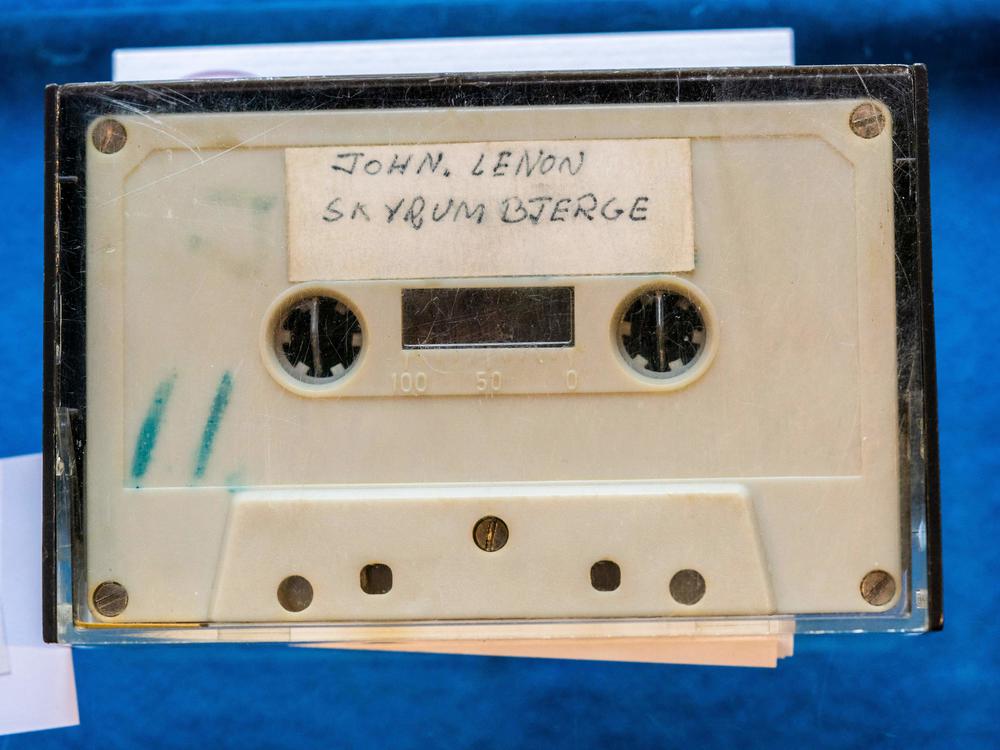Section Branding
Header Content
What's An Unreleased John Lennon Tape Worth? Nearly $60K, According To This Bidder
Primary Content
A tape of John Lennon speaking with a group of student journalists and singing an unpublished song fetched 370,000 kroner — or $58,240 — at an auction in Denmark on Tuesday.
The 33-minute conversation, which was recorded in January 1970, spans several of the topics that Bruun Rasmussen Auctioneer says "defined Lennon in that period": His peace campaign with Yoko Ono, The Beatles and his hair.
That cassette, along with 29 photos and a copy of the school newspaper that ran parts of the Lennon interview, were bundled together as a lot item in an auction dedicated to 20th century artwork. It sold well over its estimated price of 200,000 to 300,000 kroner ($31,481 to $47,222), the Associated Press reports.
"I thought it was extraordinary that it went above the estimate," Alexa Bruun Rasmussen told the AP. "Unfortunately it is confidential who the buyer is, but I can reveal that it went abroad."
The story behind the recording
Lennon and Ono traveled to Denmark in late December 1969 to address custody issues involving Ono's 5-year-old daughter from a previous marriage.
Danish journalists learned of the couple's whereabouts after their first week and organized an official press conference. Then came fate.
"Due to severe weather conditions, a small group of journalists and four 16-year-old students on the quest of interviewing John Lennon for the school magazine turned up late for the press conference," the auction house explained. "Lennon and Ono agreed to talk to them anyway."
It describes the setting of that conversation as "intimate" and the atmosphere as "remarkably relaxed." Around 10 people were in the room, and photos show Lennon, Ono and her daughter Kyoko lounging on a couch with their sock-covered feet propped up on a coffee table, a decorated Christmas tree in the background.
It was two young student journalists who documented the scene: Karsten Højen recorded the interview (reportedly on a tape recorder borrowed from the local hi-fi shop), and Jesper Jungersen took photos.
Højen told the AP that they did the interview — against the backdrop of the Vietnam War and the Cold War — because Lennon and Ono had "a message of peace, and that was what was important to us."
What Lennon said
The conversation mostly consists of Lennon answering journalists' questions at length, with Ono occasionally joining in, the auction house said.
Lennon reportedly talks about why the couple came to town, their micro-macro diet, promoting world peace through art and music, the length of his hair and his frustration with The Beatles' image. (The group had parted ways by this time, but did not announce the news for several months.)
"A student asks if they would consider recording Blues music to which Lennon replies that all they play is Blues," the auction house writes. "At one point someone suggests a dance around the Christmas tree whilst singing a Danish Christmas carol (Lennon partly tunes in although not knowing the lyrics). A student asks whether Lennon would play the guitar, and he plays 'Radio Peace', followed by 'Give peace a chance.'"
"Radio Peace" was written for a radio station in the Netherlands but never actually released, according to the AP.
Højen told the BBC that "Radio Peace" was supposed to be the theme song for a radio station that didn't end up opening, and said that "to our knowledge the only place where this song exists is on our tape."
He said he realized decades later that he was sitting on a valuable tape, and put it away in a bank vault.
Just how valuable exactly, the creators learned on Tuesday. Højen told the AP the auction "exceeded all expectations." He said surviving men who did the interview have not decided what to do with the money.
This story originally appeared on the Morning Edition live blog.
Copyright 2021 NPR. To see more, visit https://www.npr.org.


